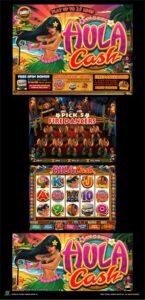
[Update: The N.C. Supreme Court issued important ruling on video sweepstakes in 2012 and 2013. See this post and this post for more details.]
Internet sweepstakes operations have continued to mushroom across the state. A recent newspaper article identified eight stand-alone internet sweepstakes parlors in Durham alone. If true, then Durham now offers twice as many internet sweepstakes parlors as it does movie theaters. And that number does not include the many gas stations and convenience stores that offer internet sweepstakes on a computer or two in a corner of the store. These sweepstakes businesses are as popular as they are plentiful. One internet sweepstakes operator based in Pilot Mountain made an estimated tax payment to Roanoke County, Virginia that assumes several million dollars of 2010 revenue in just that one county.
In response, more and more municipalities are creating new privilege license tax categories aimed at internet sweepstakes operators. Hendersonville was one of the first towns to act, adopting a flat tax of $2,600 for such businesses in October. Municipalities seem to be upping the ante in recent weeks, with each new tax higher than the previous one. Aberdeen just adopted this ordinance calling for a flat tax of $2,000 plus $2,500 per machine. Last month, Oxford and Kannapolis were two of the first towns to adopt a gross receipts tax for these businesses: both will be charging $500 per machine plus a percentage of the business’s profits. With many of the stand-alone internet sweepstakes parlors offering ten or more computers for gaming (gambling?) use by their customers, these taxes could prove to be a substantial source of revenue for some towns.
Are these taxes legal? Almost certainly under state law. Cities have broad authority under GS 160A-211 to tax all businesses in their jurisdictions unless a business is covered by a tax exemption or restriction. As far as I can tell, no exemption or restriction applies to internet sweepstakes operators.
Under the repealed-but-still-applicable GS 105-66.1, cities are subject to a a $5-per-machine cap for privilege license taxes on electronic video games. But that cap covers only machines that “play electronic video games when a coin or other thing of value is deposited in the machine.” Based on my field research–I won $12!–and newspaper reports, customers generally are provided a password to access the internet sweepstakes games. Because nothing is “inserted” into the machines to begin playing, I don’t believe the $5 cap would apply to internet sweepstakes operators.
GS 160A-211(d) prohibits privilege license taxes on telecommunications providers taxed under state sales tax provisions. This means a gross-receipts tax on the revenue generated those sweepstakes operators that are (allegedly) selling cell phone time along with the “free” sweepstakes entries is likely prohibited. But a flat-tax on the computers used to reveal those entries should avoid this prohibition.
The federal Internet Tax Freedom Act (IFTA) prohibits state and local taxes on the sale of internet access. Similar to the state ban on cell phone privilege license taxes, the IFTA would likely ban a gross-receipts tax on the revenue generated by sweepstakes operators that are (allegedly) selling internet access time along with the “free” sweepstakes entries. But the IFTA contains a “grandfather” clause that exempts from its ban taxes that existed as of 1998. A sweepstakes operator therefore could be taxed under a general retailer/service privilege license category that was in place by 1998. And, just as with the state ban on cell phone service taxes, the IFTA prohibition could be avoided with a flat per-machine tax on the computers used to reveal the sweepstakes entries. Most cities that are taxing sweepstakes operators are doing so with flat taxes, an approach that I think should avoid violating federal law.
How much tax is too much? Nobody knows for sure. The NC Constitution states that local taxes must be “just and equitable,” but I cannot find any NC court opinions that directly address the question of exactly when a tax becomes so burdensome as to become unjust or inequitable. Old cases from other jurisdictions conclude that the power of taxation cannot be used to eliminate a legal business, suggesting that if a tax would be illegal if it eliminated any possibility of profit for internet sweepstakes operators. Both other (equally old) cases suggest that local governments have more leeway when taxing businesses that harm public morals or safety, as do these sweepstakes according to some critics.
If a town would prefer to prohibit rather than profit from these sweepstakes businesses, can they ask the police to shut these places down? My criminal law colleague Jeff Welty tells me that he has not heard of a single successful criminal prosecution of a sweepstakes operator anywhere in the state. In fact, several gaming operators have obtained injunctions against criminal prosecution after demonstrating that the sweepstakes do not constitute illegal slot machines, video gaming, or lotteries under current law.
The sweepstakes operators have avoided criminal prosecution apparently because they do not require the “insertion” of a thing of value (as do slot machines) and because the opportunity to play the games is offered for free in conjunction with the sale of a legitimate product. At the establishment I visited, $5 bought me 25 minutes of internet time along with 40 electronic sweepstakes entries (“points”) that I could reveal by playing slot-machine-type video games. The price of the internet time was comparable to the $9-per-hour price at FedEx Kinkos. (Curiously, I didn’t see many sweepstakes customers checking their email.)
The legal status of internet sweepstakes is likely to change this summer when the General Assembly convenes in Raleigh. Some members have proposed outlawing these businesses, while others say the state should regulate and tax them. But until one of those proposals passes, internet sweepstakes operators will remain a potential revenue source for local governments.
